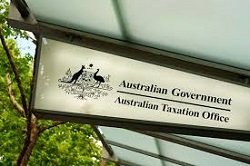Recently the Government passed a law which allows the Australian Taxation Office (ATO) to disclose tax debt information to relevant parties.
The law took effect on 28 October 2019 and gives the ATO the authority to disclose tax debt information to credit reporting bureaus where the tax debt is $100,000 or greater and has been outstanding by more than 90 days. There will be a number of criteria that will need to be met, still to be formalised in a legislative instrument but likely to include:
- The entity must have an ABN and not be an excluded entity. Excluded entities include DGRs, registered charities, government entities and complying superannuation entities. All other entities with a registered ABN, including individuals, will meet this criteria.
- The total debts owing must be at least $100,000 meaning multiple debts across different accounts with the ATO will be aggregated and may be disclosed once the debts reach this threshold and have been overdue for more than 90 days
- Debts that have previously been negotiated and are under arrangements with the ATO can be excluded from this disclosure
- Further, debts that are under review with the Inspector General of Taxation by way of an active complaint lodged by the taxpayer can also be excluded from disclosure
The ATO have stated that there may be circumstances in which the criteria will be met where they may decide to not disclose tax debts to credit agencies. This will be in the case where exceptional circumstances are being experienced by the taxpayer and will be considered by the ATO on a case by case basis.
It is intended that this new law will reduce the unfair competitive advantage some taxpayers may have in not managing their tax debts over those that comply with their obligations. It will allow businesses and credit providers to make a more informed assessment of the creditworthiness of an entity and ultimately should encourage more taxpayers to engage with the ATO in managing their tax debts.
It is important to note that these disclosure rules will relate to all tax debts. Tax debts comprise of income tax, activity statement debts, superannuation, fringe benefits and penalties and interest charges.
Disclosing tax debts will impact business credit scores which will have consequences for all types of taxpayers and sole traders in particular given the effect this could have on personal borrowings.
This new law has made it a critical time for all taxpayers to ensure they are on top of their cash flow management and their tax debts. No longer can the ATO can be used as a short to medium term finance option.
If you need help with your cash flow management or would like assistance in negotiating with the ATO regarding your tax debts, contact the team at Davidsons. We have team members that specialise in putting the steps in place that can make this simpler for you, give you back some time to focus on your business and your family and help you sleep better at night knowing things are under control.
For more information please contact your Davidsons team member or email us at info@davidsons.com.au.
Disclaimer: this information is of a general nature and should not be viewed as representing financial advice. Users of this information are encouraged to seek further advice if they are unclear as to the meaning of anything contained in this article. Davidsons accepts no responsibility for any loss suffered as a result of any party using or relying on this article.



